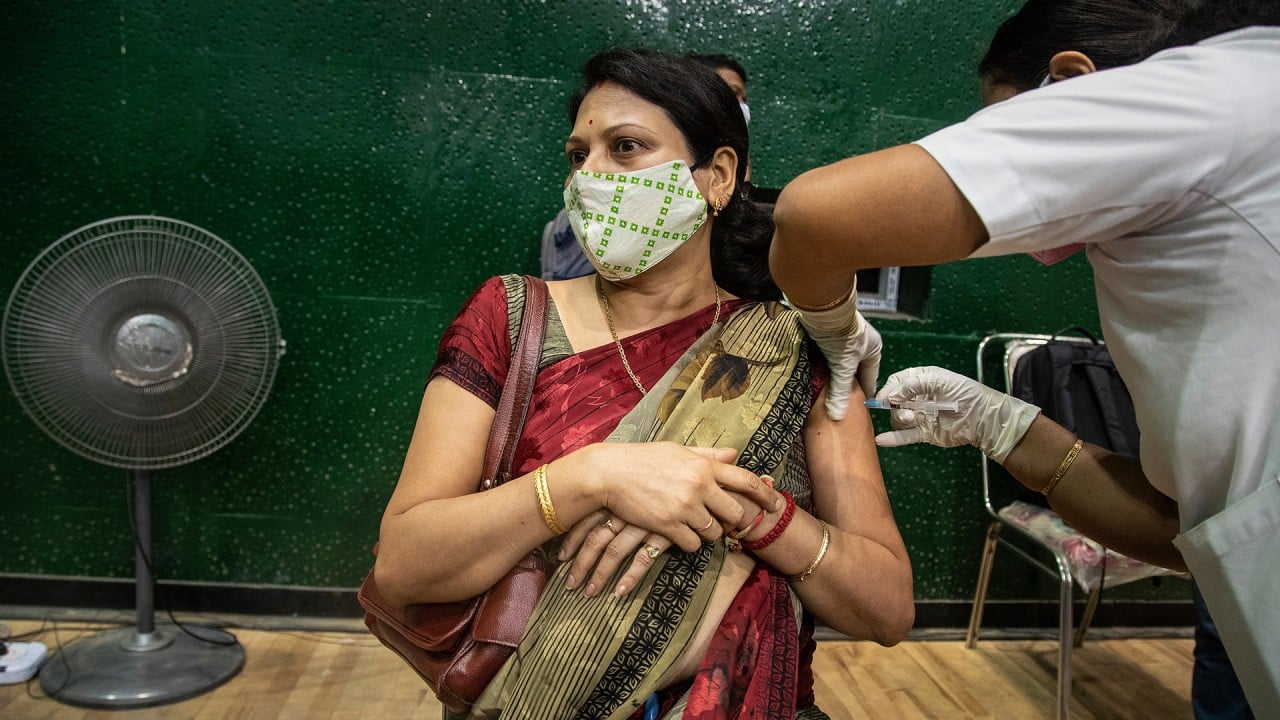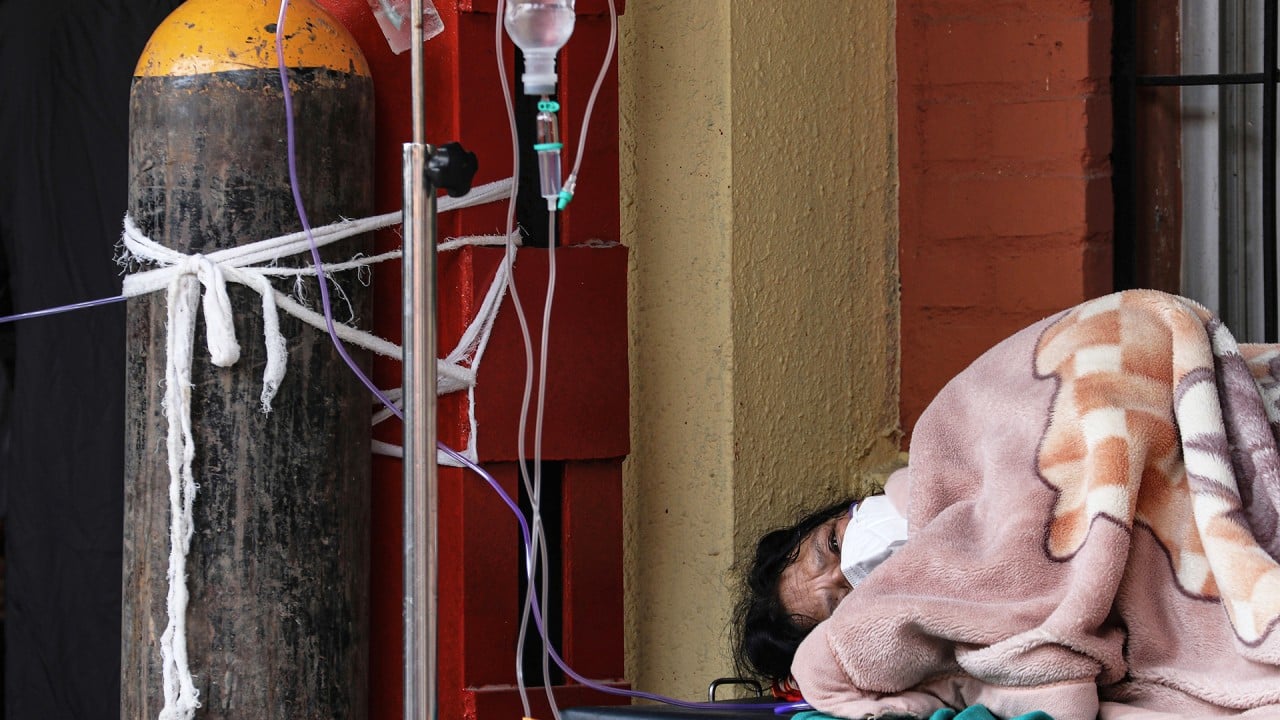
Apple’s attempt to diversify manufacturing to India is being stymied by New Delhi’s coronavirus crisis
- Apple has been hit by Covid-19 infections at two of its India plants, according to Taiwan media report
- The coronavirus wave is likely to slow handset manufacturing production in India and weaken consumer demand, analysts say
This is the first in a series of stories about the impact of India’s Covid-19 crisis on the Indian and Chinese economies and the global initiative to restructure supply chains.
Apple’s efforts to diversify its production from China to India are being hit by the Covid-19 crisis there, with infections and factory shutdowns prompting analysts to question whether the country can become a smartphone manufacturing and export superpower.
According to a report by Taiwanese news agency CNA on Saturday, Foxconn confirmed that 10 Chinese engineers at its plant in the Indian city of Chennai had been infected with Covid-19. Meanwhile Wistron Corporation, another key player in Apple’s manufacturing chain, closed its plant in south India for five days after a spate of Covid-19 cases, according to the CNA report.
“We can confirm that a small number of employees who worked at one of our facilities in India have tested positive for the Covid-19 virus,” said Foxconn in a statement on Monday.
Xiaomi, Oppo, Vivo, Realme face Indian dilemma
“We are working to provide the employees and their families with the support they need … we have been working closely with local government and public health authorities in India to address the challenges that we and all companies are facing in dealing with the Covid-19 crisis.”
Despite wider government efforts to halt the spread of Covid-19, it has not yet imposed any manufacturing lockdowns.
“Many Covid restrictions are being initiated [on a] daily basis and many things are being severely impacted, including demand and supply”, said Bakshi Hardeep Vaid, a professor at the Nanjing University of Information Science and Technology.
India has become the second-largest market for smartphones since 2019, amid a raging tech war between the US and China, with companies including Apple, Samsung and Xiaomi setting up manufacturing operations in the country.
In a bid to turn the country into an export and manufacturing hub, India’s government last year increased import taxes on smartphones and launched the US$6.65 billion Production Linked Incentive (PLI) scheme for hardware makers.

Three of Apple‘s top contract manufacturers, Foxconn, Wistronn and Pegatron, have announced plans to invest a total of almost US$900 million in India in the next five years to tap into the PLI, according to sources quoted by Reuters in September last year.

03:26
India’s mass-vaccination drive falters as country hits 20 million coronavirus cases
However, India’s ambitions to become the “new China” in phone manufacturing are now being blunted by one of the world’s worst outbreaks of Covid-19, with daily deaths from the virus surging past 4,000 for the first time on Saturday, according to government data.
IDC’s Kaur expects smartphone makers to be hit by the Covid-19 surge during the second quarter and possibly longer if there are more waves of infections.
Market research firm TrendForce forecast on Monday that Covid-19 would reduce India’s smartphone production by a total of 12 million units in the second and third quarter. This could result in a 7.5 per cent year on year decrease in smartphone production in India for the whole year.
India holds up wireless approvals for China-made devices
The short-term impact of community lockdowns has also weakened consumer demand, with Bloomberg Intelligence last week reporting that smartphone shipments could fall 25 per cent in the second quarter. Aside from the impact on Apple and Samsung’s supply chains, Chinese brands such as Xiaomi, Realme, Oppo and Vivo – all of which have been expanding in the country in recent years – have also been hit by India’s Covid-19 wave of destruction.
As such, Kaur says China will remain an important manufacturing hub for Apple, at least in the short term, given the possibility of lower production in India and strong demand for iPhones.
In the Chinese city of Zhengzhou, the world’s largest manufacturing complex for iPhones, Foxconn recently raised bonus pay for new recruits, signalling strong production activity. Foxconn has four plants in China while in India the company makes iPhones in two plants.

03:12
‘India is a horrifying preview,’ says Red Cross as Nepal’s Covid-19 cases rise
China contributed 68 per cent of global handset production in 2020, with India at around 15 per cent, according to research firm Counterpoint, which estimates a figure of 19 per cent for India in 2021.
Apple has been shifting production out of China, its second biggest market, slowly but steadily, but Covid-19 has stopped this and Apple’s production in China in 2020 returned to 2017 levels, according to a May report by Counterpoint.
Thanks to a developed production infrastructure, a deep labour pool and supportive local government policies, China remains critically important to the global electronics supply chain.
iPhone 12 launches in China to strong demand
But IDC’s Kaur says that the costs of Chinese production may increase and in the future, Apple may continue to look to other markets to increase production, whether it’s Vietnam for iPads or India for iPhones.
Additional reporting by Che Pan





